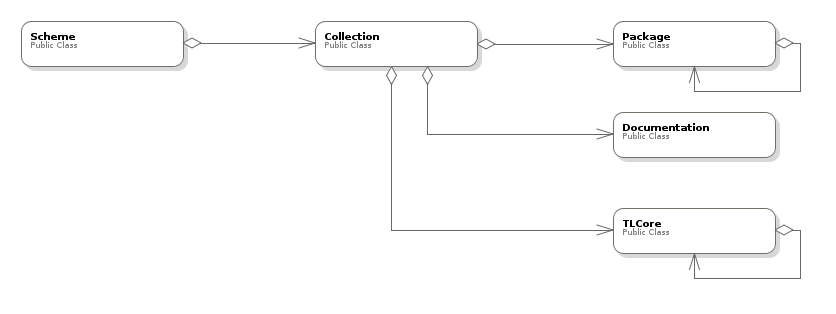The FreeBSD-TeXLive project provides TeXLive through individual ports in the FreeBSD ports collection.
Thanks to Hiroki Sato (@hrs), TeXLive is now available as a few big ports in the FreeBSD ports tree, which should be the preffered way of installing TeXLive on FreeBSD for most users. This repo is only maintained for the few who need more control on what is happening.
There are two main branches:
master, where the basic infrastructure stands;releng, where the magic happen.
There are basically two ways for having the TeXLive ports in your FreeBSD ports tree:
- Fetch already generated ports using portshaker;
- Generate the ports yourself.
FreeBSD ports for all TeXLive packages are located in the releng branch of the repository. Install it using portshaker:
shell> make -C /usr/ports/ports-mgmt/portshaker-config install # Ensure TEXLIVE is checked
shell> portshaker -v
The ports are updated daily.
shell> mkdir freebsd-texlive
shell> cd freebsd-texlive
shell> git clone https://github.com/smortex/freebsd-texlive trunk
shell> ln -s trunk/Tools/texlive Makefile
shell> $EDITOR Makefile # Tweak to fit your needs
shell> make
You should update your ports quite often since TeXLive tarballs are updated daily. A crontab will hopefully do it for you while you sleep
you will have a bunch of TeXLive ports in print/texlive-foo. You will need texlive-core which installs the binaries. The texlive-scheme-foo and texlive-collection-foo ports can help you install large collections of ports if you don't want to pin only the packages you use.
The FreeBSD TeXLive repository is automatically updated each night at 4.30am UTC. The process is generaly less than one hour long, so the repository is generaly updated before 5.30 UTC.
Run portshaker without argument to update and merge to your local Ports Tree both FreeBSD official ports and FreeBSD TeXLive ports:
shell> portshaker
Then update your ports the usual way, for example using portmaster or portupgrade.
This content was migrated from github and describe the situation at the early beginning of the project. Some details have changed, but the general idea is supposed to be the same. Informational only!
The TeXLive Project provide .tar.lzma distfiles. Mk/bsd.command.mk and Mk.bsd.ports.mk have been updated so that the FreeBSD port system can handle them (r3).
While the TeXLive packages include binary packages for FreeBSD, FreeBSD-TeXLive prefer to compile from source
The source code of all binaries is included in a single (big) archive: texlive-20080816-source.tar.lzma (22 Mb).
Installing this package is not enough to have a working TeXLive: binaries will need at least core macros and fonts to be suitable for any usage.
Although all binaries source code is provided in a single distfile, all the rest of TeXLive is split 5229 distfiles.
TeXLive distfile are quite comparable to regular software packages: they contains both data and metadata. Since TeXLive include an installer, there are packages containing this one and the metadata related to it. In the case of the port to FreeBSD, we will consider this installer as some kind of metadata: the TeXLive installation will he handled by the FreeBSD ports system (so that other ports can depend on TeXLive), thus the TeXLive installer will not be installed.
Metadata is used by the TeXLive installer to handle the TeXLive installation on the user system. As written before, we do not use the TeXLive installer for handle the setup on the machine, but rather the ports infrastructure.
Metadata is however used to create TeXLive ports.
Basically, metadata is stored in the tlpkg/tlpobj/<package>.tlobj directory of each distfile. As a consequence, for gathering information about the svninfo.tar.lzma package, extract and read tlpkg/tlpobj/svninfo.tlpobj:
name svninfo
category Package
revision 10233
runfiles size=5
texmf-dist/tex/latex/svninfo/svninfo.cfg
texmf-dist/tex/latex/svninfo/svninfo.sty
Package data is basically everything in the distfile except the contents of the tlpkg directory.
As written before, this directory has a tlpobj sub-directory that contains metadata information. The other files and directories that can be found in /tlpkg are relative to the TeXLive installer and should not be installed.
Distfiles are split in 5 categories:
- Scheme (10 distfiles)
- Collection (84 distfiles)
- Packages (3618 distfiles)
- Documentation (207 distfiles)
- TLCore (1310 distfiles)
The relationships between these categories is represented bellow:

As an example, the svninfo Package is part of the collection-latexextra Collection, which is part of both scheme-full and scheme-gutenberg Schemes.
Most (but not all) Packages, Documentation and TLCore distfiles can be grouped. For example:
svninfo.doc.tar.lzma— Documentation of the package;svninfo.source.tar.lzma— Source of the package;svninfo.tar.lzma— Macros of the package.